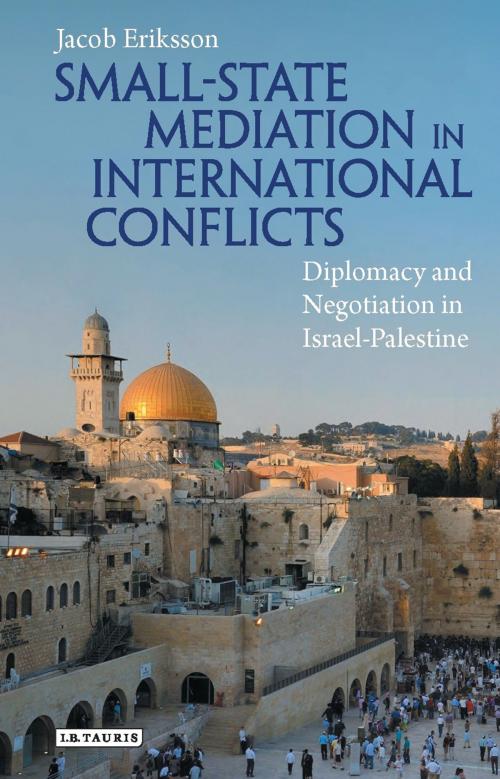Small-State Mediation in International Conflicts
Diplomacy and Negotiation in Israel-Palestine
Nonfiction, Reference & Language, Reference, Social & Cultural Studies, Political Science, History| Author: | Jacob Eriksson | ISBN: | 9780857739117 |
| Publisher: | Bloomsbury Publishing | Publication: | August 19, 2015 |
| Imprint: | I.B. Tauris | Language: | English |
| Author: | Jacob Eriksson |
| ISBN: | 9780857739117 |
| Publisher: | Bloomsbury Publishing |
| Publication: | August 19, 2015 |
| Imprint: | I.B. Tauris |
| Language: | English |
The Israeli-Palestinian conflict is one of the most prolonged, contentious and divisive in the modern era. But, despite the volatile nature of the conflict, which frequently flares up in armed confrontations between the two, there have been advancements towards a settlement through an admittedly protracted peace process. In this book, Jacob Eriksson argues that the impact of small states, such as Sweden or Norway, should not be ignored when it comes to the ongoing efforts to negotiate between Israel and Palestine. Although small states lack coercive power, the talks they have sponsored in this particular instance (such as the Norwegian-mediated Oslo Accords) have transformed both the conflict and the conceptions of a solution to it. Of course, the diplomatic and financial power of larger states such as the USA is undoubtedly central to a negotiated solution. But by looking at conflict resolution from the perspective of the small state, Eriksson offers a unique analysis of power and diplomacy in the context of negotiations and efforts towards peace settlements.
The Israeli-Palestinian conflict is one of the most prolonged, contentious and divisive in the modern era. But, despite the volatile nature of the conflict, which frequently flares up in armed confrontations between the two, there have been advancements towards a settlement through an admittedly protracted peace process. In this book, Jacob Eriksson argues that the impact of small states, such as Sweden or Norway, should not be ignored when it comes to the ongoing efforts to negotiate between Israel and Palestine. Although small states lack coercive power, the talks they have sponsored in this particular instance (such as the Norwegian-mediated Oslo Accords) have transformed both the conflict and the conceptions of a solution to it. Of course, the diplomatic and financial power of larger states such as the USA is undoubtedly central to a negotiated solution. But by looking at conflict resolution from the perspective of the small state, Eriksson offers a unique analysis of power and diplomacy in the context of negotiations and efforts towards peace settlements.















